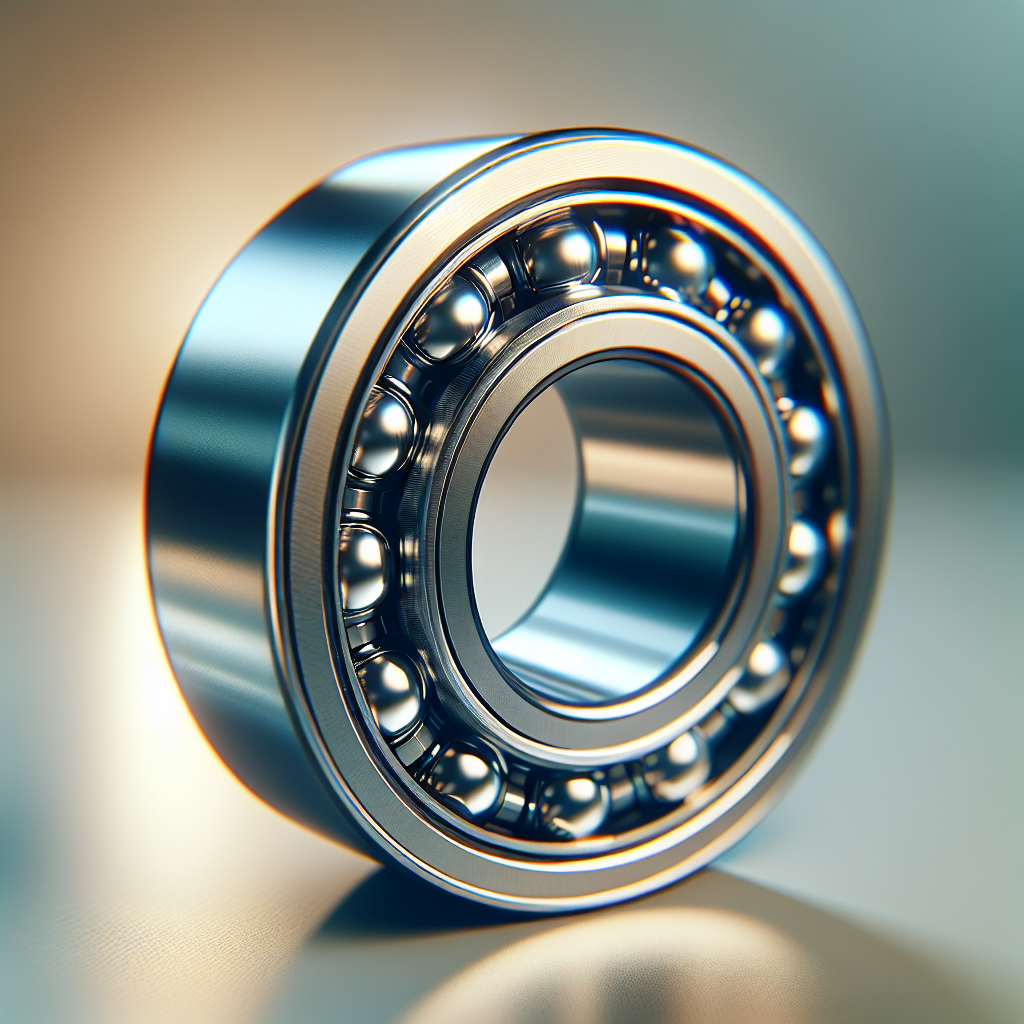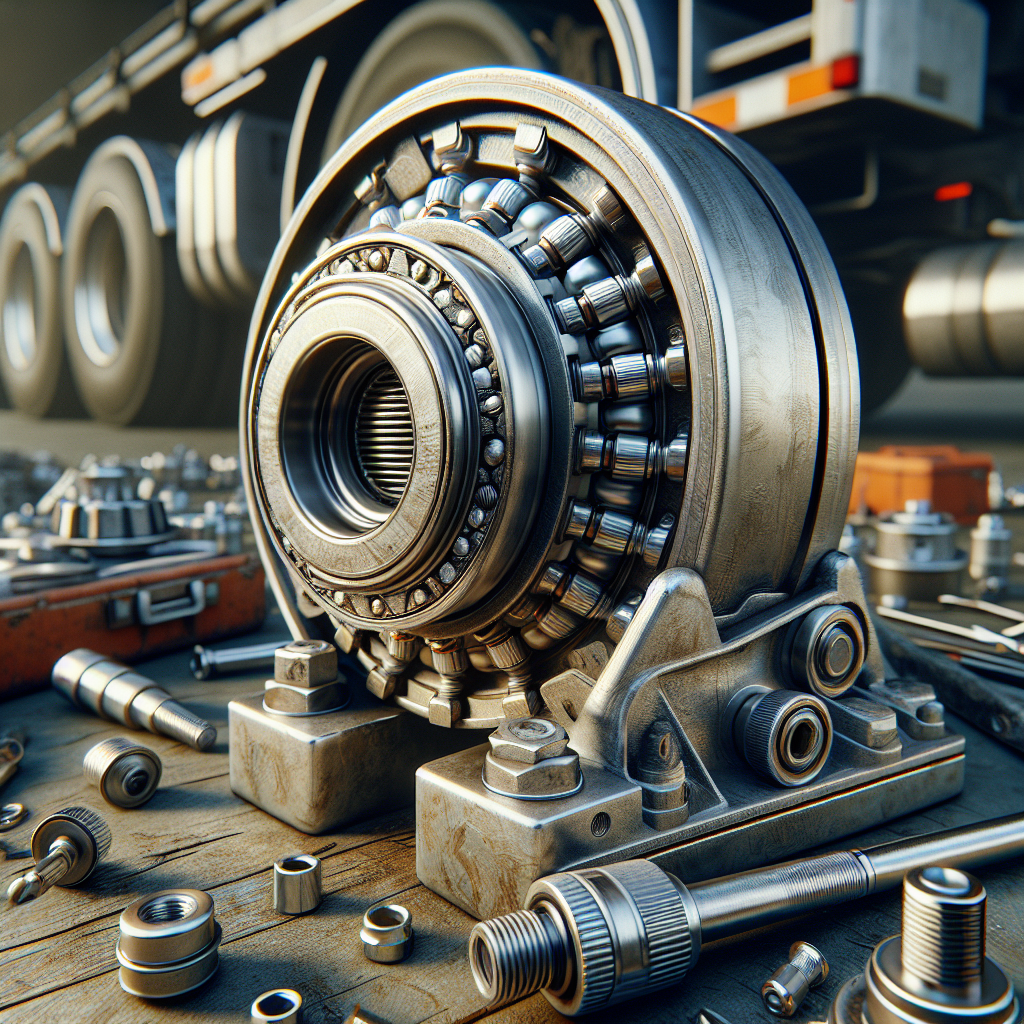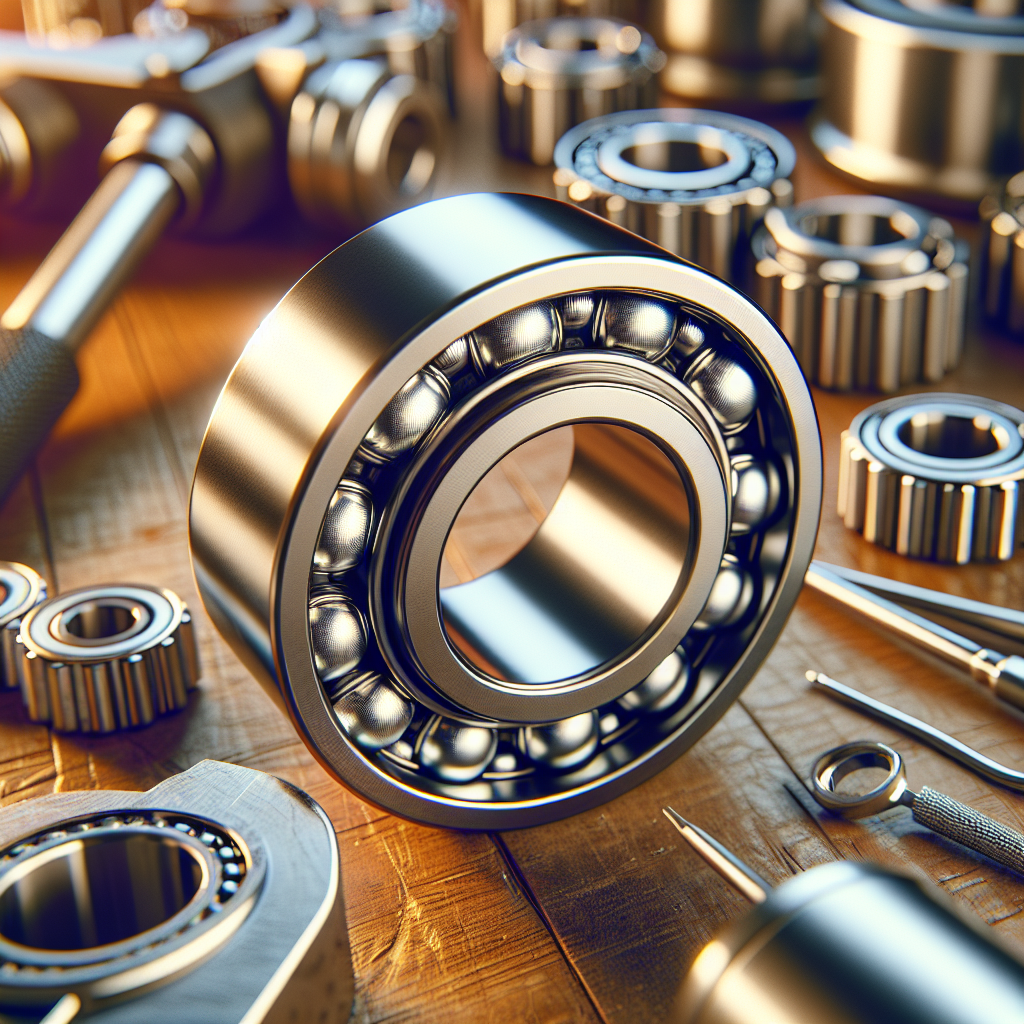Wheel bearings play a crucial role in the performance and safety of any trailer. They are essential components that allow the wheels to rotate smoothly with minimal friction. Understanding their function can significantly enhance your maintenance routine and extend the lifespan of your trailer.
When it comes to what should wheel bearings be checked for, it’s important to consider several key factors:
- Wear and Tear: Over time, wheel bearings can experience wear due to constant motion and exposure to the elements. Regular inspections can help identify any signs of degradation early on.
- Lubrication: Proper lubrication is vital for wheel bearings to function effectively. Insufficient lubrication can lead to overheating and eventual failure.
- Alignment Issues: Misalignment can cause uneven wear on the bearings, resulting in premature failure. Checking for proper alignment during routine maintenance is essential.
- Noise and Vibration: Unusual sounds or vibrations can indicate problems with the wheel bearings. If you notice any irregularities, it’s crucial to have them examined immediately.
By understanding these aspects and regularly checking your wheel bearings, you can prevent catastrophic failures that could compromise the safety of your trailer. Tow with peace of mind, knowing that trailerwatchdog is standing guard.
Key Signs Indicating Wheel Bearing Issues

Identifying issues with wheel bearings early can save you from costly repairs and ensure your safety on the road. Here are some key signs that may indicate wheel bearing problems:
- Unusual Noises: A common sign of failing wheel bearings is a grinding or humming noise coming from the wheels. This can signify that the bearings are worn out or damaged.
- Vibration: If you feel vibrations in the steering wheel or the trailer while driving, it could be a sign of improper wheel bearing function. This can affect handling and lead to further issues.
- Excessive Play: If you notice that the wheel has excessive movement when you try to shake it, this can be a sign of worn bearings. Regularly checking for play can help catch problems early.
- Leaking Grease: If you see grease leaking from the wheel hub, it may indicate that the seals are damaged, allowing lubricant to escape and contaminants to enter.
- Heat Build-Up: Overheating can be a symptom of failing bearings. If you notice that your wheels are unusually hot after driving, it could be due to friction caused by poor lubrication or wear.
Being aware of these signs can help you take timely action to maintain your trailer and avoid serious issues down the road.
Essential Checks for Wheel Bearings Maintenance

Maintaining wheel bearings is crucial for ensuring the safety and performance of your trailer. Regular checks can help identify potential problems before they escalate. Here are some essential checks for effective wheel bearing maintenance:
- Visual Inspection: Regularly inspect the wheel bearings for any signs of damage or wear. Look for rust, pitting, or discoloration, which can indicate deterioration.
- Check Lubrication: Ensure that the bearings are adequately lubricated. If the grease appears contaminated or is insufficient, it’s essential to clean and repack the bearings with fresh grease.
- Tightness Check: Verify that the wheel bearings are properly tightened. Loose bearings can lead to increased play and eventual failure. Follow the manufacturer's torque specifications for accuracy.
- Temperature Monitoring: Use temperature monitoring systems to keep track of bearing heat levels. Elevated temperatures can signal lubrication issues or bearing damage.
- Listen for Noises: While driving, pay attention to any unusual sounds coming from the wheel area. Strange noises can be an early warning sign of bearing problems.
By incorporating these checks into your maintenance routine, you can enhance the longevity of your wheel bearings and ensure a safer towing experience.
How to Inspect and Test Wheel Bearings

Inspecting and testing wheel bearings is a vital process that helps ensure their proper functionality and extends their lifespan. Here’s a step-by-step guide on how to effectively inspect and test wheel bearings:
- Lift the Trailer: Begin by safely lifting the trailer using a jack or ramps. Ensure that it is stable and secure before proceeding.
- Remove the Wheel: Carefully remove the wheel to access the wheel hub and bearing assembly. Use appropriate tools to avoid damaging any parts during removal.
- Check for Play: With the wheel removed, grasp the hub and rock it back and forth. Any noticeable play indicates that the bearings may be worn and require replacement.
- Inspect the Bearings: Remove the bearing assembly and examine each component for wear, including the races and rollers. Look for signs of scoring, discoloration, or pitting.
- Spin Test: Spin the bearing by hand to check for smoothness. If you feel any rough spots or hear grinding noises, the bearing is likely damaged.
- Grease Quality Test: Check the grease for contamination or a burnt smell. If the grease appears dirty or has lost its consistency, it’s time to clean and repack the bearings.
These inspection and testing steps are essential for maintaining safe and efficient wheel bearings. Regular checks can prevent unexpected failures and costly repairs, ensuring a reliable towing experience.
The Consequences of Neglecting Wheel Bearings

Neglecting wheel bearings can lead to a variety of severe consequences that not only compromise the safety of your trailer but also impact its overall performance. Understanding these repercussions is crucial for any trailer owner.
Here are some of the significant consequences of neglecting wheel bearings:
- Increased Wear and Tear: When wheel bearings are not properly maintained, they can experience excessive friction. This leads to increased wear on both the bearings and other related components such as the brake system.
- Overheating: Worn or insufficiently lubricated bearings can overheat, causing damage to the bearing and potentially leading to complete failure. This can create hazardous driving conditions.
- Wheel Lock-Up: In extreme cases, a seized wheel bearing can cause the wheel to lock up while in motion. This can result in loss of control, posing a significant danger to the driver and others on the road.
- Damage to the Axle: A failing wheel bearing can lead to misalignment, placing undue stress on the axle and other structural components. This can result in costly repairs and reduced trailer lifespan.
- Increased Maintenance Costs: Ignoring signs of wear can lead to more severe damage, resulting in much higher repair costs. Regular checks can save time and money in the long run.
By recognizing the potential dangers associated with neglected wheel bearings, trailer owners can take proactive measures to ensure their equipment remains in optimal condition.
Best Practices for Wheel Bearings Care and Longevity
To ensure the longevity and optimal performance of your trailer's wheel bearings, following best practices for their care is essential. Implementing these practices not only enhances safety but also reduces maintenance costs in the long term.
Here are some best practices for wheel bearings care:
- Regular Inspections: Conduct routine checks on your wheel bearings to identify any signs of wear, such as unusual noises or vibrations. Early detection can prevent larger issues from developing.
- Proper Lubrication: Ensure that wheel bearings are adequately lubricated with the correct type of grease. Over time, lubrication can degrade, so it's vital to replace it as needed.
- Monitor Temperature: Keep an eye on axle temperatures using a monitoring system. An increase in temperature can indicate problems within the wheel bearings that need immediate attention.
- Follow Manufacturer Guidelines: Always adhere to the maintenance schedules and guidelines provided by the trailer manufacturer for inspecting and servicing wheel bearings.
- Use Quality Parts: When replacing wheel bearings, choose high-quality components that meet or exceed industry standards. This ensures better performance and longevity.
By incorporating these practices into your maintenance routine, you can significantly enhance the life of your wheel bearings. Tow with peace of mind, knowing that trailerwatchdog is standing guard.

